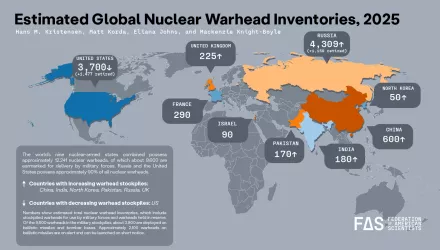In Israel, it has become commonplace—indeed, almost axiomatic—to speak of the Iranian nuclear program as an existential threat. Senior decision-makers and defense officials have repeated this warning so often that the words "existential" and "Iran" have become almost synonymous in Israeli discourse. Foreign media, meanwhile, repeatedly speculate on the prospects of an Israeli attack on Iran, and some have speculated that 2010 may be the "year of decision."
The view from Israel
Does Iran truly present an existential threat to Israel? Of late, a number of officials have begun questioning this heretofore unassailable claim. Former Foreign Minister Tzipi Livni was the first senior leader to make a statement along these lines. Current Defense Minister Ehud Barak, contradicting previous statements, recently declared that Iran does not in fact present an existential threat to the Jewish state. And such senior defense officials as former Mossad Director Efraim Halevy and IDF General Ben-Israel have both made clear that they consider the Iranian threat to be severe, but not existential. There is a world of a difference in this characterization. Existential threats must be eliminated at all costs. Severe ones can be dealt with through a variety of lesser means. To make the determination, it is necessary to understand how a nuclear Iran would endanger Israeli security.
Scenario 1: Nuclear Attack
The ultimate nightmare scenario envisages Iran actually using a nuclear bomb against Israel. Israel, however, is presumed by the international community to be a nuclear power in its own right, with estimates of the size of its arsenal ranging from approximately 100 to 400 warheads and the delivery means at its disposal said to include aircraft and missiles, both ground- and sea-launched. An Iranian nuclear attack would thus presumably risk unleashing a massive and devastating Israeli response, far greater than that which Iran, which has yet to complete development of even its first bomb, will be able to inflict for many years to come. In essence, then, this scenario attributes to Iran either fundamental irrationality, or a willingness to absorb a cost that most others would find wholly irrational....
Freilich, Chuck. “Decision Time in Jerusalem.” Journal of International Security Affairs, Spring 2010




